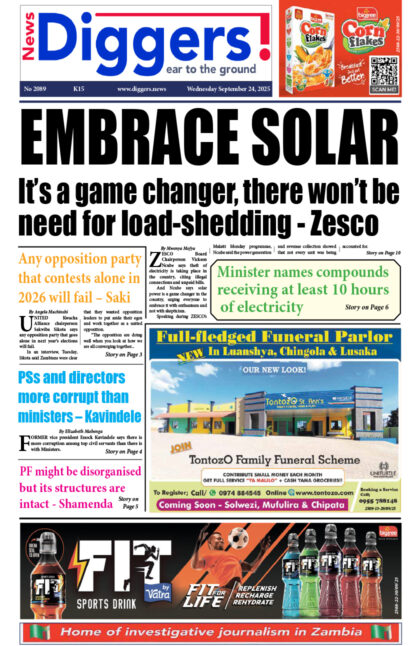THE European Union Election Observation Mission has noted that despite the 2016 EU EOM recommendations for improved stakeholder engagement, shortcomings in the Electoral Commission of Zambia (ECZ) communications and outreach during the 2021 elections continued.
And the Report has revealed that neither national and international observers nor the media were granted full access to the tabulation and results verification at the national results centre.
According to the EU EOM final report, only one recommendation, the abolition of so-called “polling streams”, was fully adopted.
“Following the 2016 general elections, the 2016 EU EOM offered 33 recommendations for consideration by the Zambian authorities. 19 These included reviewing the law to ensure legal certainty, freedom of assembly, decentralised ECZ structures, equality of the vote, campaign finance rules, ECZ media oversight, and enhanced transparency measures. Only one recommendation, the abolition of so-called “polling streams”, was fully adopted. Despite the 2016 EU EOM recommendations for improved stakeholder engagement, shortcomings in ECZ communications and outreach during the 2021 elections continued. Reflecting other aspects of 2016 EU EOM recommendations, the ECZ adopted tactile ballots and elaborated procedures for Conflict Management Committees (CMC),” read the report.
“Some improvements in the approach to voter education were also observed, but overall effective delivery was either late or hampered due to the COVID-19 pandemic. Proposed constitutional and legislative reforms ahead of the 2021 elections did not adequately address EU EOM recommendations for political parties, for participation of women or persons with disabilities, the use of state resources, or penal code reforms. The failure of the National Assembly to legislate on these and other issues underpinned shortcomings for the conduct of various aspects of the 2021 elections. Overall, only seven recommendations were either fully or partially implemented.”
It stated that despite a complicated and unclear accreditation process, ECZ accredited all national observer organisations that applied.
“The law provides for observation by national and international observers accredited by the ECZ. The ECZ introduced a decentralised accreditation process at the district level,165 and set a tight deadline for accreditations that was later extended twice. The accreditation procedures were published late and included cumbersome requirements for the accreditation of national observers, such as certified copies of the national registration card and the physical presence of the observers at the accreditation centres,” the report read.
“In addition, they included other preconditions, such as proof of registration of the civil society organisation under a specific law for at least three years while such organisations can validly register under different laws and having a minimum of three years of actual work experience in the field of governance. Despite a complicated and unclear accreditation process, the ECZ accredited all national observer organisations that applied.”
And the Report stated that neither national and international observers nor media was granted full access to the tabulation and results verification at the national results centre.
“The ECZ explained to the EU EOM that the new accreditation procedures aimed at limiting the numbers of “fake” or “partisan” organisations to become accredited by thoroughly checking organisations and observers to ensure the integrity of the electoral process. The ECZ did not re-issue the public notice, including the clarifications. To date, the total number of accredited observers is unknown to the ECZ due to the chaotic accreditation process. Media encountered a similar accreditation process as national observers in some districts. The accreditation process was smooth for polling agents,” the Report read.
“Neither national and international observers nor media was granted full access to the tabulation and results verification at national results centre. Recommendation: Embed in ECZ regulations clear and transparent procedures for timely and inclusive accreditations of observers, party agents and media, ensuring unhindered access to all aspects of polling, counting and tabulation, including at the national results.”
























